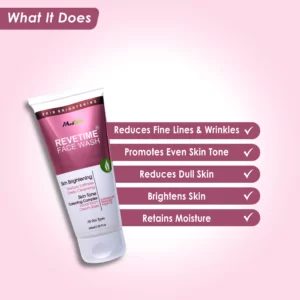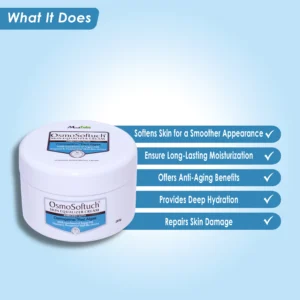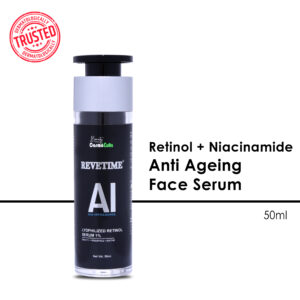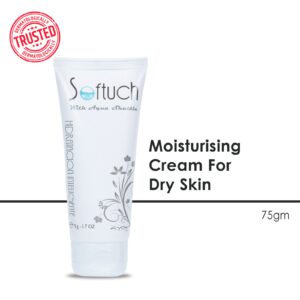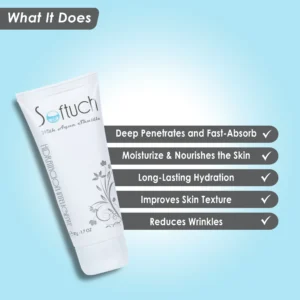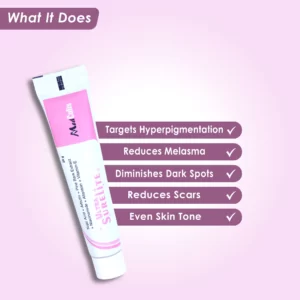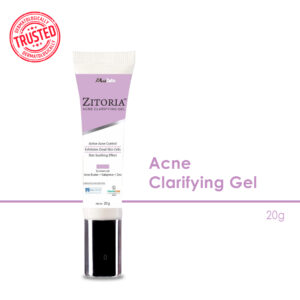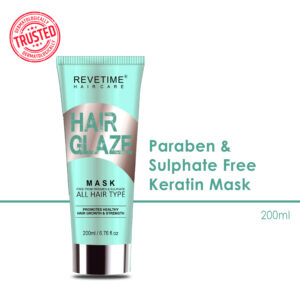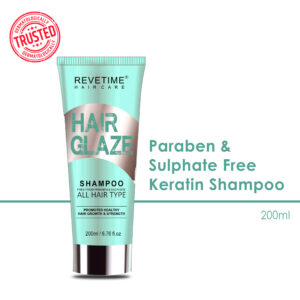How to Reduce Hyperpigmentation and Get Clear Skin

How to Reduce Hyperpigmentation and Get Clear Skin
How to Reduce and Lighten Hyperpigmentation
Discover causes and strategies to Reduce and Lighten Hyperpigmentation. Embrace a skincare routine for a radiant, even tone. Transform with expert tips and targeted treatments.
Introduction
Hyperpigmentation is a skin concern commonly affecting individuals of all skin types and tones. Defined as the darkening of the skin due to an excess production of melanin, it results from various factors such as sun exposure, genetics, hormonal changes, and inflammation. In this article, We will explore the causes of hyperpigmentation, the importance of managing it, and effective strategies for achieving a more even skin tone.
Understanding Hyperpigmentation
-
Melanin and its Role
In comprehending hyperpigmentation, it’s crucial to understand melanin, the pigment responsible for skin colour. Melanocytes produce melanin, and its overproduction leads to dark spots and uneven skin tone.
-
Causes of Excess Melanin Production
Several factors contribute to increased melanin production, including sun damage, hormonal changes, genetics, and inflammation. Identifying the root cause is essential for adequate management.
-
Impact of Sun Damage, Hormonal Changes, Genetics, and Inflammation
Sun damage is a primary contributor to hyperpigmentation. Harmful UV rays stimulate melanin production, leading to dark spots. Hormonal changes, like those during pregnancy or with the use of certain medications, can also trigger hyperpigmentation. Genetic predispositions and skin inflammation also play significant roles in uneven skin tone.
Managing Hyperpigmentation
Treatment Options
-
Sunscreen Protection
-
Ultra Matte Sunscreen
Select a broad-spectrum sunscreen with a higher SPF50 sunscreen to prevent hyperpigmentation. Opt for an ultra-matte formula for protection without a greasy finish. Ensures defense against UVA and UVB rays while maintaining a matte appearance on the skin. Regular application is key for effective sun protection and skin health.
Extend sun protection to exposed skin using a broad-spectrum body sunscreen with SPF50. Apply it to the neck, chest, arms, and legs to guard against UVA and UVB rays. Opt for water-resistant formulas for outdoor activities, and remember to reapply regularly for comprehensive sun defence and overall skin health.
-
Encapsulated Retinol for Dark Spots
Retinol serum, derived from vitamin A, is renowned for its skin-renewing abilities. Encapsulated retinol serum specifically targets dark spots, promoting a more even skin tone. This potent ingredient enhances skin texture and reduces hyperpigmentation, making it a valuable addition to skincare routines for a radiant complexion.
-
Vitamin C Serum for Skin Lightening
Vitamin C serum, a powerful antioxidant, is renowned for brightening and lightening the skin, diminishing hyperpigmentation, and integrating the best vitamin C serum into your skincare routine to boost overall skin radiance. This potent ingredient enhances skin tone and provides added protection against environmental stressors.
Best Practices for Dark Spots on the Face
-
Sunscreen and Sun Avoidance
Consistent SPF50 sunscreen application and avoiding prolonged sun exposure are crucial to preventing further darkening of hyperpigmented areas. Spf50 sunscreen acts as a protective barrier, and coupled with sun avoidance, it plays a paramount role in maintaining the clarity and tone of the skin, especially in areas prone to hyperpigmentation. Establishing these habits is essential for effective skincare and minimizing the risk of exacerbating pigmentation concerns.
-
Incorporating Vitamin C Serum
Regularly using the best vitamin C serum benefits the skin by supporting collagen production, reduces inflammation, and brightening the skin. These properties effectively manage dark spots, providing a comprehensive approach to achieving a more even and radiant complexion.
-
Exfoliation for Skin Cell Turnover
Incorporating gentle exfoliation into your skincare routine is essential. It aids in the removals of dead skin cell, promotes healthy skin cell turnover, and effectively reducing the appearance of hyperpigmentation. This process unveils a fresher layer of skin, contributing to a more even and radiant complexion.
Addressing Pigmentation on the Face
-
Sun Damage and Hormonal Changes
Effective management of hyperpigmentation requires tailoring skincare routines to address specific causes, like sun damage or hormonal changes. Customizing your skincare approach ensures targeted treatment, optimizing the chances of effectively reducing and preventing uneven skin tone.
-
Protective Measures and Skincare Routine
Complementing a targeted skincare routine for hyperpigmentation cream with protective measures, such as wear a hats and sunglasses, enhances overall effectiveness. These additional precautions shield the skin from further damage, effectively reinforcing efforts to manage and prevent hyperpigmentation.
-
Topical Creams with Hydroquinone or Retinoids
In severe cases of hyperpigmentation, dermatologist-prescribed topical creams containing ingredients like hydroquinone or retinoids may be recommended. These specialized treatments aim to lighten dark spots and require professional guidance to ensure their safe and effective use.
Achieving Results: Skincare Routine
Consistent Use of Sunscreen with SPF50
Consistency is crucial for managing hyperpigmentation. Make spf50 sunscreen daily habits, even on cloudy days, to protect your skin consistently from harmful UV rays. This routine is essential for maintaining progress in managing and preventing further darkening of hyperpigmented areas.
Topical Treatments with Vitamin C and Retinoids
Enhance the efficacy of your skincare routine by combining the best vitamin C serum with retinol serum-based products. This synergistic approach promotes brighter and even-toned skin, addressing multiple aspects of skin health and rejuvenation. Consistent use of this combination contributes to a radiant and improved complexion over time.
Gentle Exfoliation for Healthy Skin Cell Growth
Regular exfoliation is a crucial practice for encouraging the growth of healthy skin cells, which, over time, reduces the appearance of dark spots. By removing dead skin cells and promoting turnover, exfoliation supports a more even and revitalized complexion, diminishing the visibility of hyperpigmentation.
Conclusion
Effectively managing hyperpigmentation involves a comprehensive strategy, including sun protection, targeted treatments, and a consistent skincare routine. Patience and consistency are crucial, recognizing that results may require time when adopting a skincare routine to address hyperpigmentation. Achieves a more even and radiant skin tone that is well within reach with the right combination of treatments and a dedicated skincare routine. Empower yourself to manage and reduce hyperpigmentation by following these strategies daily, revealing the vibrant and even complexion you desire.





